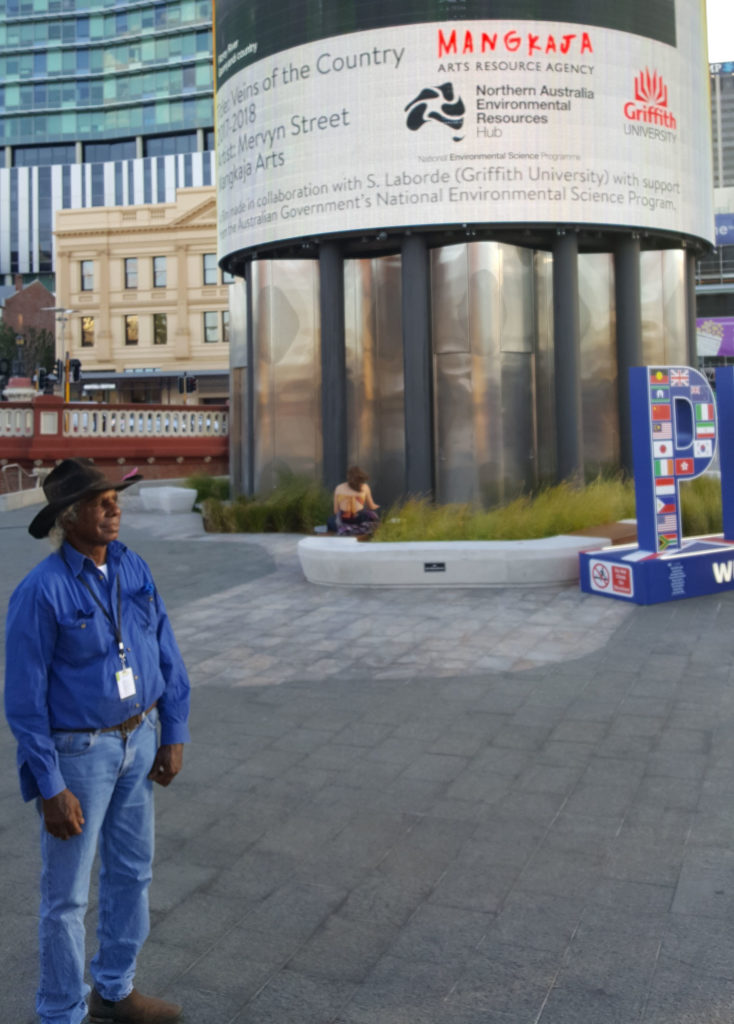23 May 2019
We’re all part of that river, we drink one water from the one main rainfall. Everybody.
– Mervyn Street
These are the closing words of Veins of the Country, a captivating short film that explores relationships between water, people and places along the Kimberley’s Fitzroy River and that’s reaching people’s hearts across the country.
The film is narrated by Mervyn Street, Traditional Owner, Gooniyandi artist and Chairman of Mangkaja Arts in Fitzroy Crossing. Mervyn is working with Hub researcher and film-maker Dr Sarah Laborde, as part of a Hub project led by Professor Sue Jackson to understand and support Indigenous water management in the catchment and inform the first water allocation plan developed for the river.
The film received an award for ‘best environmental message’ from Broome’s 2018 Mud and Saltwater Film Festival and already has touched a wide cross-section of audiences. The children at Fitzroy Crossing School have been inspired by the film to write and record a song about the river. The Art Gallery of Western Australia showed the film every hour on a public screen in Yagan Square, Perth CBD, as part of the WA Art Gallery’s Desert River Sea: Portraits of the Kimberley exhibition and it’s been screened at Fremantle Art Centre’s Revealed exhibition, the Australian Institute for Aboriginal and Torres Strait Islander Studies and the University of Sydney, with more planned.
Mervyn travelled to Canberra to share the film and his story with Australian government policy-makers – comments reflect how the film powerfully articulates and explains important personal connections, and more far-reaching cultural connections, with water.
The Martuwarra Fitzroy River Council, which represents Aboriginal interests in the planning and management of the Fitzroy River, invited Mervyn to present the film to them. Its messages about the importance of water and about the deep connections people have to water in the Fitzroy Valley, support the Council’s work on protecting the values of the river.
The film continues to trigger conversations about the interfaces between water, people, policy and art and, while doing so, draws attention to the important work of NESP in promoting Indigenous research collaborations, and in caring for country, across Australia.

Mervyn Street in Yagan Square, Perth, photo Karen Dayman.
Want to know more about the Resilient Landscapes Hub's activities and our research into practical solutions to environmental problems? Stay informed about activities, research, publications, events and more through the Hub newsletter.
"*" indicates required fields